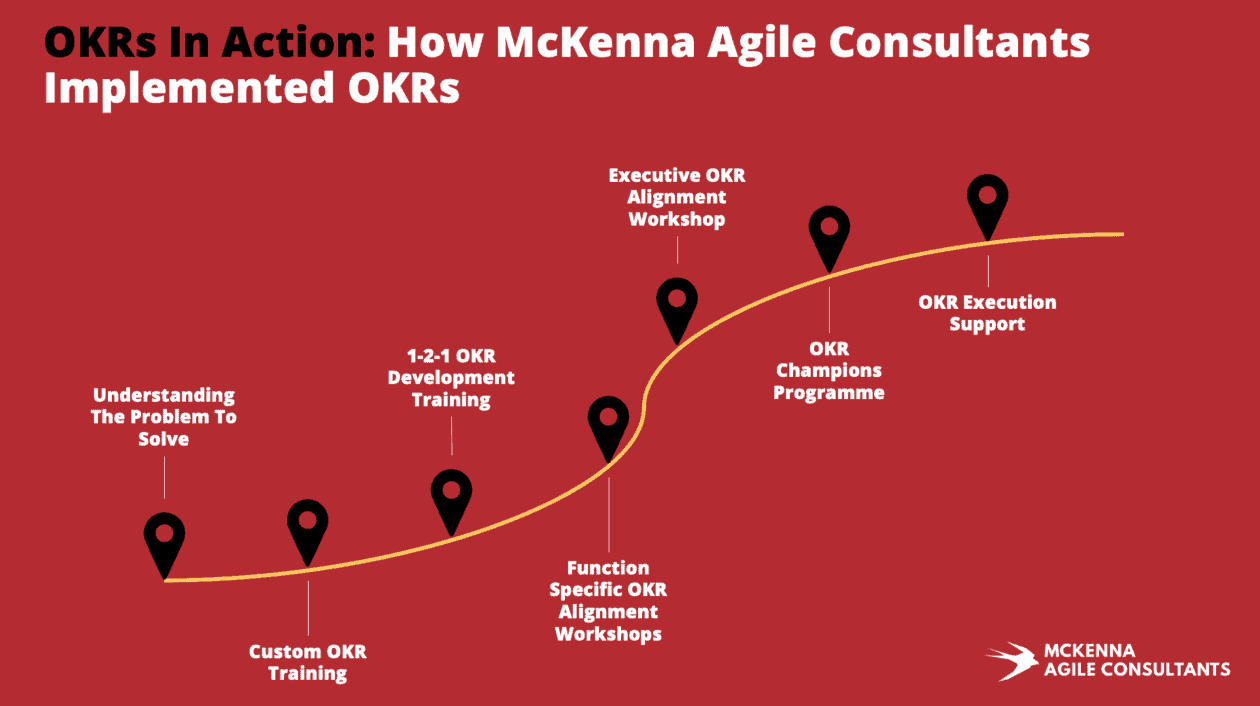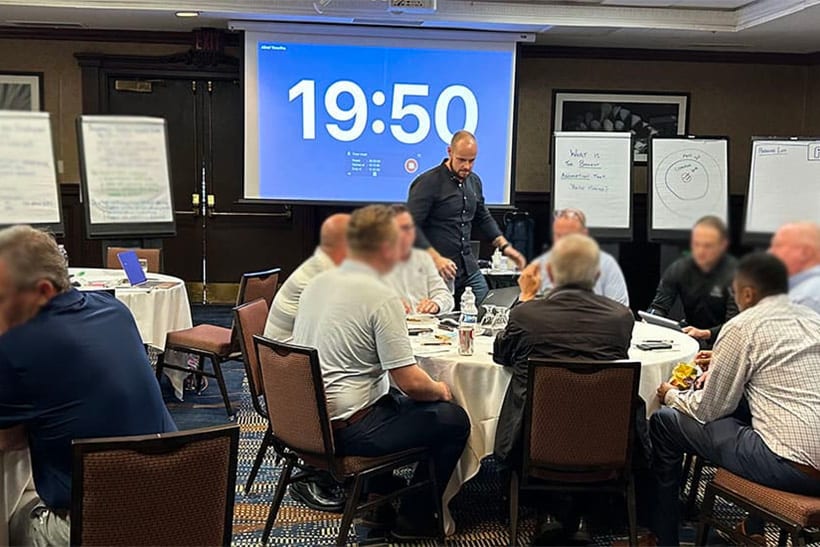Project Background
McKenna Agile Consultants have been working with a US transport and logistics organisation to help them achieve their ambitious, long term strategic goals by adopting and executing against Objectives and Key Results (OKRs). The client was looking to increase collaboration and alignment across the different organisational functions, while also creating a high-performance culture.
The Challenge
The client had achieved some success with OKRs in 2023 but needed external support to ensure a successful adoption and execution of OKRs in their day-to-day ways of working.
Several challenges and key learnings came from this experience:
- The importance of having OKR training and coaching to create a consistency in terms how OKRs are written and presented
- Concerns around having too many OKRs
- Recognition that a more formal, mature OKR execution process would be required to ensure success
- OKRs require a greater need for cross functional collaboration
- Change management is a critical element – OKRs not only change the way in which goals are described, but also change the way of how people and teams work
The Solution
The goal of this OKR implementation was not necessarily to “do OKRs right”, but to “do OKRs right for the client”.

Some of the key highlights of the OKR Implementation included:
Developing and Delivering Custom OKR Training
To create alignment and understanding on what OKRs are, we used our existing OKR training materials and tailored them to the client. The training materials were brought to life with our real experience and practical recommendations on how to excel with OKRs.
We made the training further specific by using examples from their context and created an OKR experiential learning case study for the attendees to explore putting OKR theory into practice before doing it for real.
We created customised training as we wanted to ensure that the client was self-sufficient and set up for success, meaning that we left them with the training materials for them to share, update and teach the materials in years to come.
Providing OKR Development Coaching
To support the application of the theory, we provided OKR coaching to individuals and teams. This consisted of reviewing OKRs and providing feedback, pairing with stakeholders to write and review, facilitating team discussions on OKR identification and function specific OKR alignment sessions.
OKR Executive Alignment
As per the 2023 Global State of OKRs survey, one of the top 3 challenges to executing successfully against OKRs is that “there isn’t full alignment or full support for the strategy”. With this in mind, we led a full day leadership OKR alignment meeting with the most senior leaders in the organisation.
The result of this dedicated day of discussion was for the entire leadership team to collectively prioritise and align on 3 executive level OKRs. This transparency and alignment is critical to lay the foundation for successfully meeting the organisations long term strategy.
We also used time with this group to discuss some other elements of OKRs, such as tooling options, OKR execution cycles and how we dovetail OKRs with performance management.
OKR Execution Consultancy
A key message of the training was that it does not matter if you have the most amazingly, well-written OKRs if you do not have a solid execution engine within your organisation to deliver on them. Throughout the engagement we provided consultancy and recommendations on how to get the most out of OKRs and to build a culture of Conversations, Feedback and Recognition (CFRs).
Delivery
We delivered this OKR implementation over the course of 12 weeks, using a blend of in-person and online sessions.
We delivered the initial training in-person by function so that attendees could digest and explore the theory in a context familiar to them. The coaching and consultancy were delivered primarily online.
For the OKR executive alignment session, we wanted to give leaders the time and space to focus and commit to the session, so we decided that we had to be face-to-face for such a critical session.
Ready to adopt OKRs?
This case study highlights the importance of collaboration, change management, transparency, and having expert guidance when adopting a new goal setting tool such as OKRs. These insights can serve as valuable takeaways for you and other organisations who are considering adopting OKRs.
Only 24% of organisations surveyed in 2023 believed that they were “good” at using OKRs and 5% were “excellent”. Are you in the 95% of organisations who are looking for help to supercharge goal setting and execution this year?
Get in touch today to learn how we can help to take your strategy execution to the next level using OKRs.

